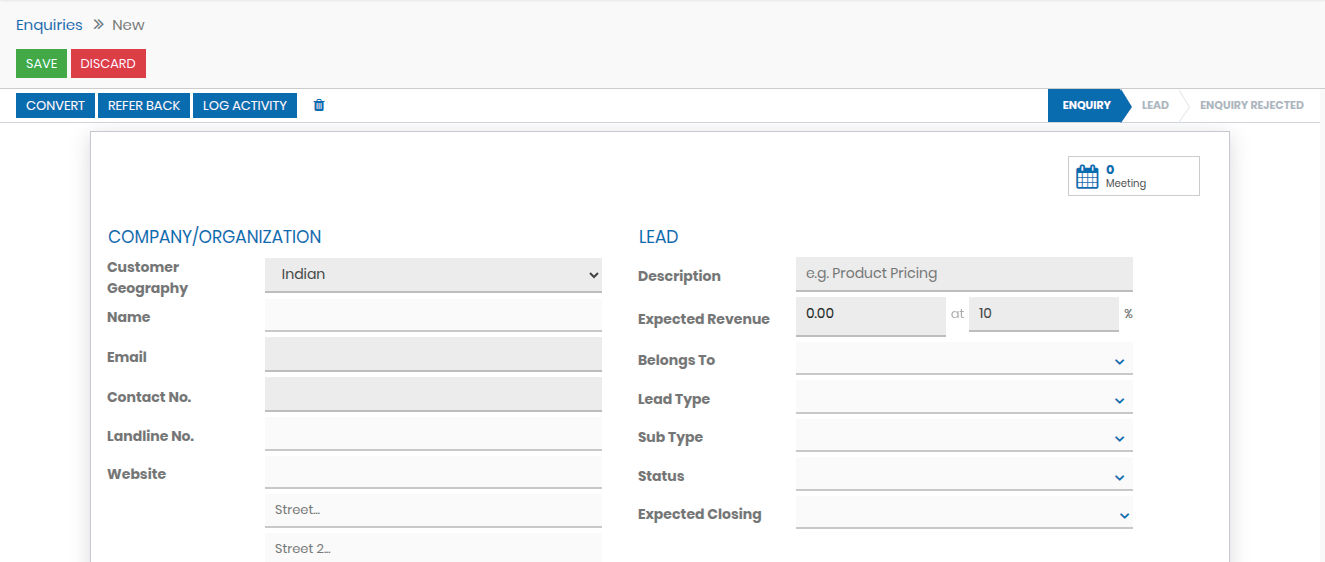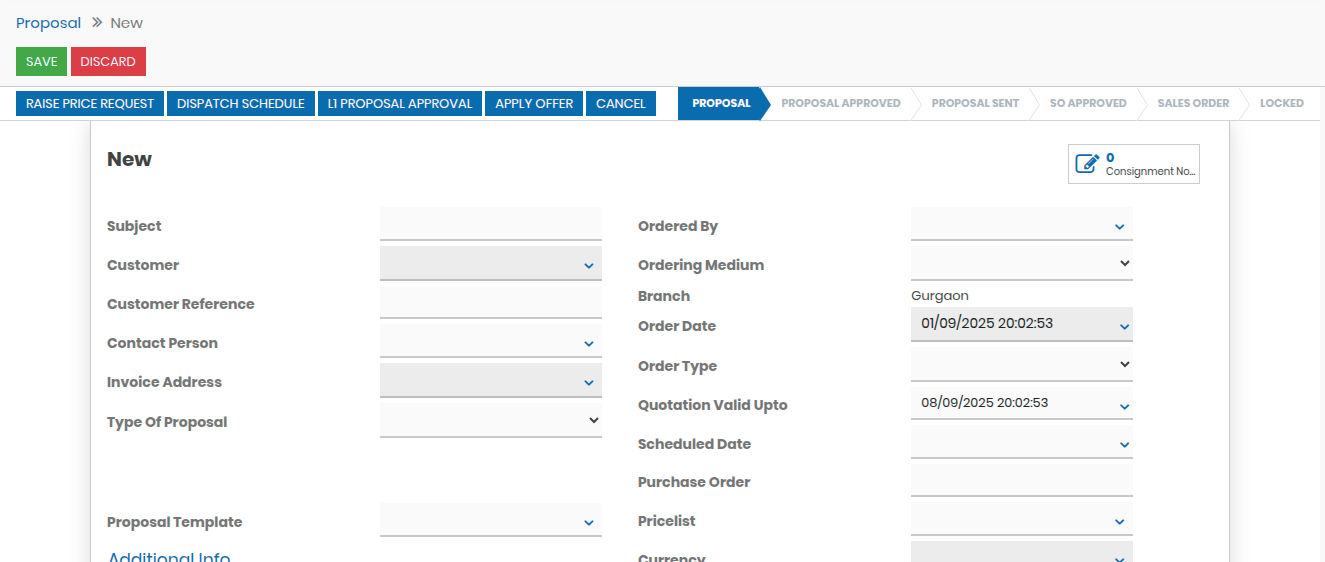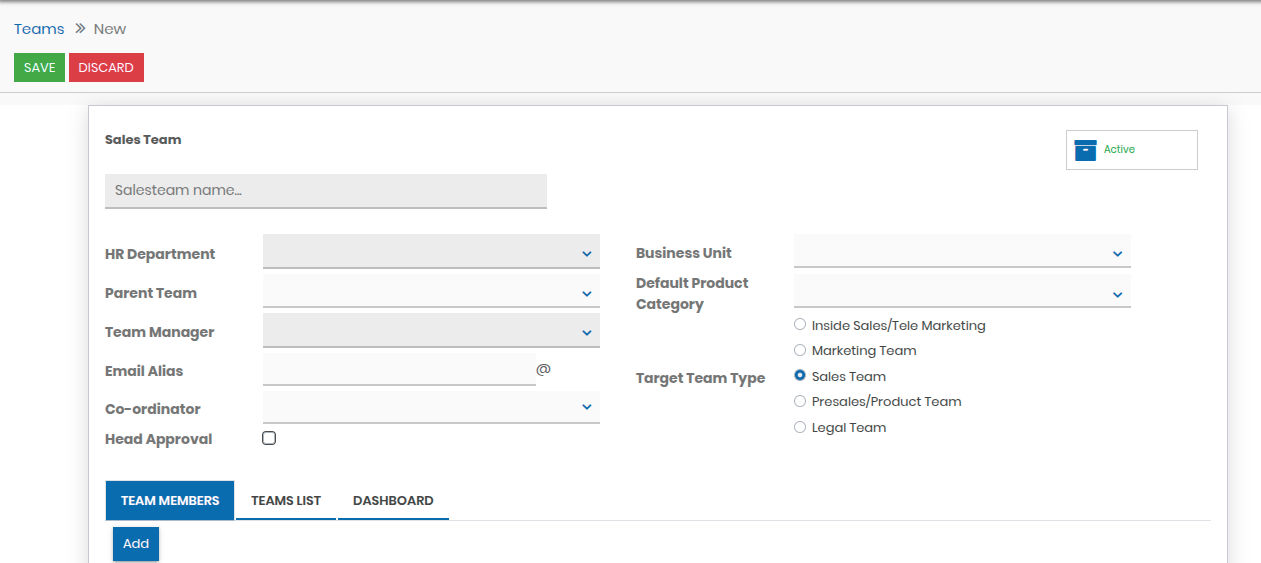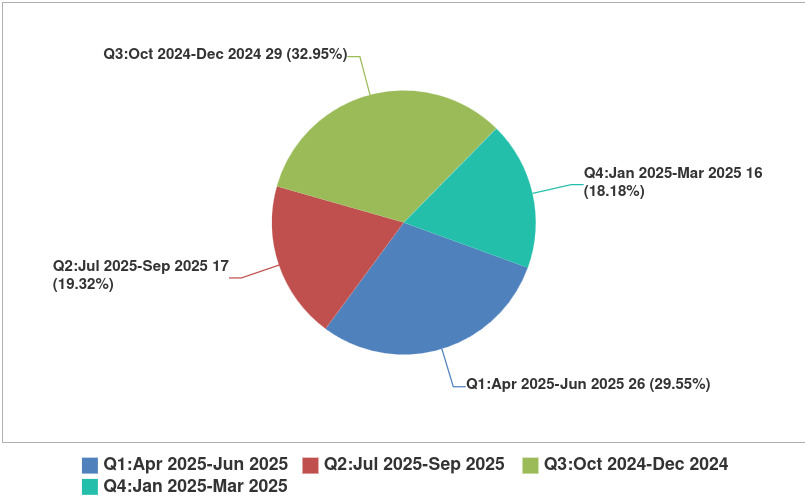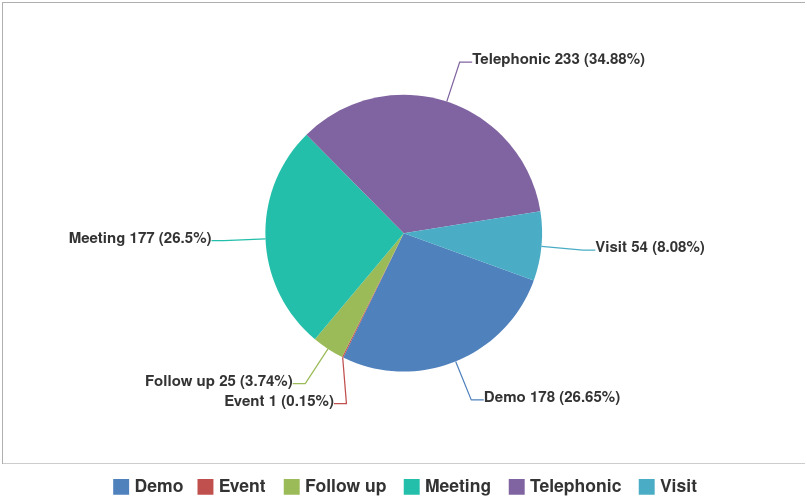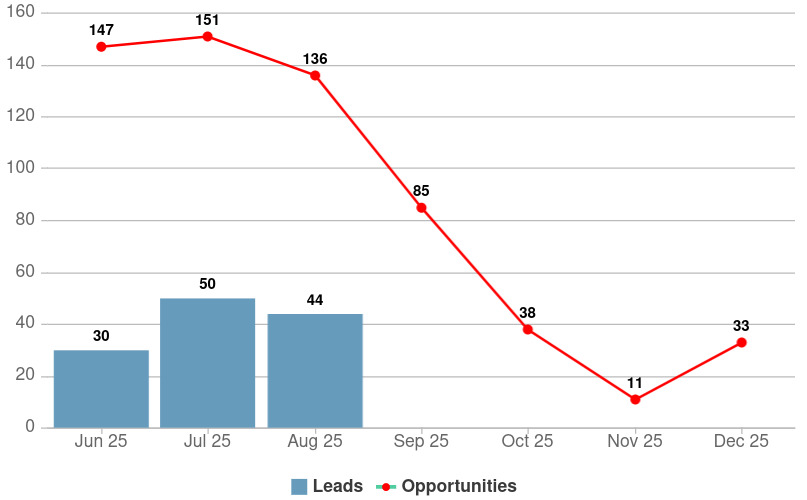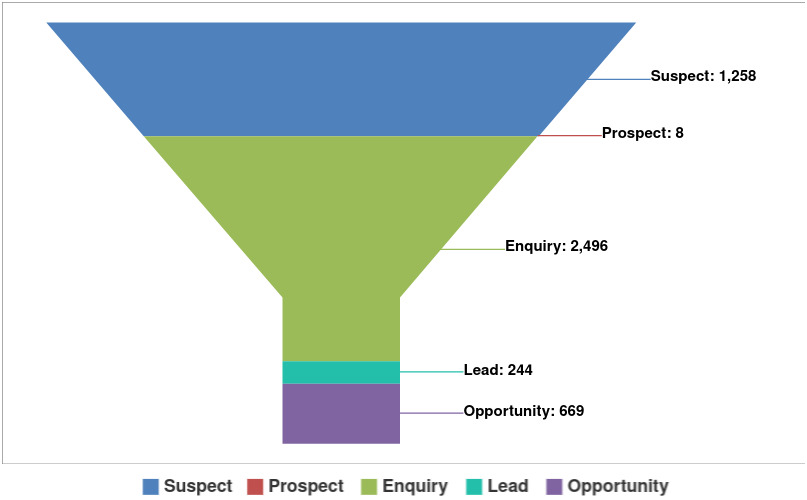Opportunity Management
When sales pipelines are unclear, it can lead to slow deal movement, unreliable forecasts, and difficulties for sales representatives trying to determine their next actions. To address this, our CRM’s opportunity management tools allow you to define stages within your sales pipeline, creating a straightforward and easily understood structure. With well-defined opportunity stages, your team can monitor progress, spot bottlenecks, and increase conversions by taking timely, informed steps.
In our CRM, you can tailor opportunity stages to fit your unique sales process. Common stages often include:
- Qualification: Determining if the lead meets key criteria such as budget, authority, need, and timeline (BANT).
- Discovery Call: The initial meaningful conversation where you learn about the prospect’s challenges and objectives.
- Demo or Meeting: Showcasing your product or service, and building trust with the prospective client.
- Proposal or Quote Sent: Presenting pricing and entering more serious negotiations.
- Negotiation: Addressing objections, refining terms, and finalizing details.
- Closed Won/Closed Lost: The outcome of the deal, whether successfully won or lost.
You can also customize these stages to match the way your team actually sells, and create multiple opportunity pipelines for different areas of your business. For instance, you might add a “Solution Design” or “Technical Scoping” stage between the demo and proposal phases for certain products or services.
CRM Reporting & Insights
Our CRM provides comprehensive reporting and dashboard capabilities to automatically gather data and monitor key metrics. These tools help you:
- Visualize deal progression across each stage and quickly identify where opportunities tend to stall.
- Detect trends, such as seasonal slowdowns or drops in conversion rates at specific stages.
- Compare how individual team members move deals through the pipeline.
- Monitor both lagging and leading indicators, like time spent in each stage or engagement activity, to better predict future results.
With our CRM, designed especially for B2B businesses, wholesalers, distributors, and manufacturers, you can customize opportunity tracking and benefit from real-time insights into your sales pipeline. These features empower your team to pinpoint bottlenecks and optimize conversion rates, driving continuous improvement and growth.
Visual Sales Pipeline
Our CRM offers multiple visual sales pipelines to represent your different business streams. You can customize each sales process with various stages, visually review expected business over specific periods, and set benchmarks that prospects must meet to advance. Leads progress through the pipeline, clearly showing their status in your sales flow.
Task Management
Task management is a straightforward yet powerful CRM feature that lets you create tasks, set reminders, and track progress. Tasks can connect to contacts or deals, be assigned to individuals or teams, and viewed as personal to-do lists, team-wide assignments, or organized Kanban boards for visual tracking.
Document Management
Document management in our CRM allows you to upload, store, and organize critical sales documents. You can even design templates for frequently used documents such as proposals and contracts, streamlining your sales process.
Calendar Integration
Our CRM integrates seamlessly with external business calendars, like MS Office, allowing you to manage your schedule from within the system and sync all events and tasks.
Meeting Scheduler
Alongside calendar integration, our CRM includes a meeting scheduler that makes booking appointments with customers simple. Sales representatives can set up various meeting types, customize availability, and collect information through tailored questions before each meeting.
Email Integration
Our CRM features email integration, connecting with business email platforms such as Outlook. Manage your email correspondence directly within the CRM, including sending, receiving, and automating emails with features like autoresponders.
Reporting and Analytics
Robust reporting and analytics tools are built into our CRM. Benefit from both prebuilt and custom sales reports, combine them in a centralized dashboard, and inspect key metrics by period, product, region, business, team, or salesperson. Drill-down graphs offer deeper insights for informed decision-making.
Workflow Automation
Workflow automation streamlines repetitive sales and marketing tasks. By setting defined triggers—such as a new customer being added—you can automate follow-up actions like onboarding emails, saving time and improving consistency.
Proposal Management
Advanced proposal management helps you create, send, and track proposals across all prospects and opportunities. Built-in templates and customization options eliminate the need for separate proposal software.
Contract Management
Our CRM also includes contract management. Create, send, track, and sign contracts using built-in or integrated e-signature software, all within the same platform.
Marketing Automation
Beyond sales, our CRM automates marketing tasks for effective customer outreach. Use insights to personalize messaging—such as event invitations, newsletters, special offers, and product launches. Website forms can automatically capture lead and profile data, helping your sales team convert more leads.
Scalability: Growing Together
Scalability is a cornerstone of our CRM, allowing it to grow alongside your business. Whether you’re just starting out or expanding rapidly, our CRM adapts to meet evolving needs, ensuring robust customer support and operational efficiency at every stage of growth.
Frequently Asked Questions
What is Opportunity Management in CRM?
Opportunity Management in CRM helps organize and track potential deals by defining clear sales stages. This structured approach allows your team to monitor progress, identify bottlenecks, and improve conversion rates.
Can I customize sales pipeline stages?
Yes, our CRM allows you to fully customize opportunity stages to match your business process. You can add stages like Solution Design or Technical Scoping to suit specific products or services.
What are common sales pipeline stages?
Typical stages include Qualification, Discovery Call, Demo or Meeting, Proposal or Quote Sent, Negotiation, and Closed Won/Closed Lost. These can be adjusted to align with your sales strategy.
How does the CRM help analyze opportunities?
The CRM provides dashboards and reports that track deal progression, detect trends, and compare team performance. Metrics like time spent in each stage and engagement activity give better sales predictions.
Who benefits most from Opportunity Management?
Our CRM is designed for B2B businesses, wholesalers, distributors, and manufacturers. It helps sales teams optimize pipelines, increase efficiency, and improve win rates.


